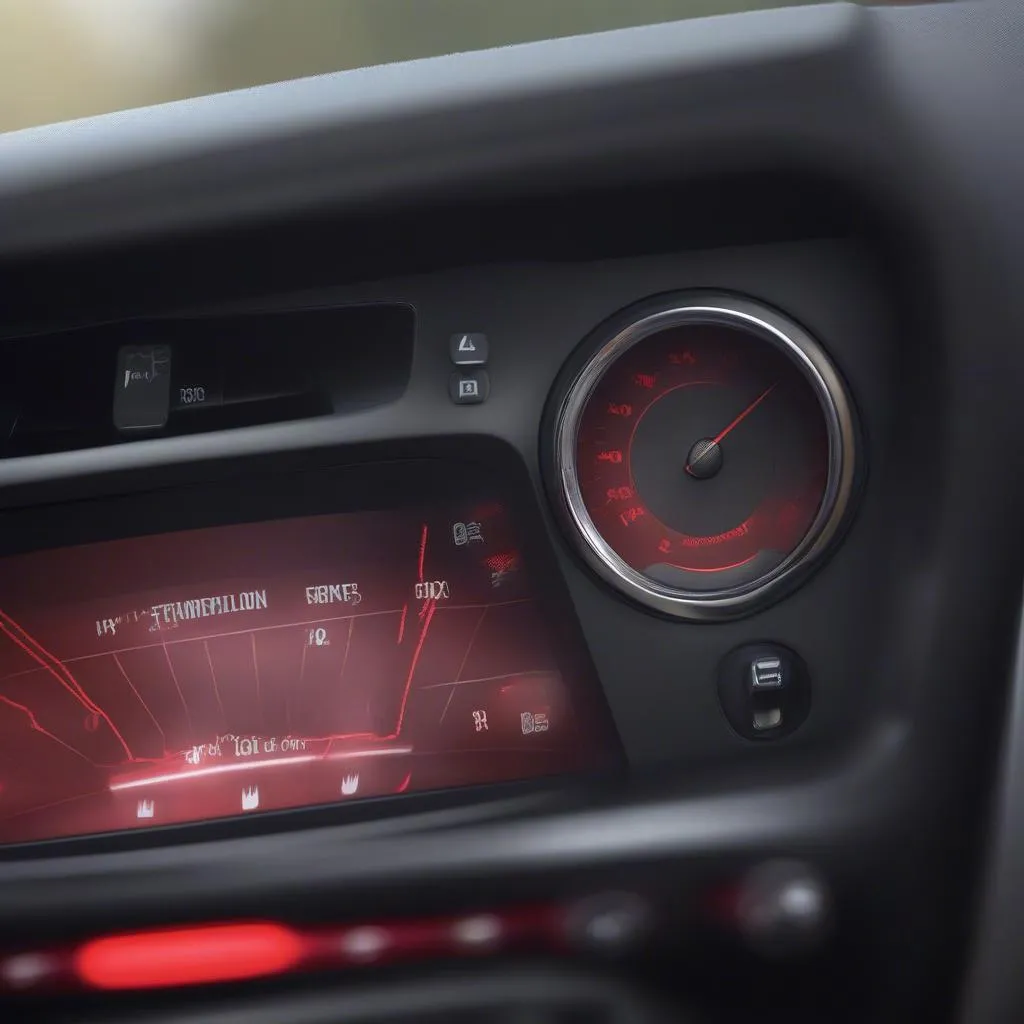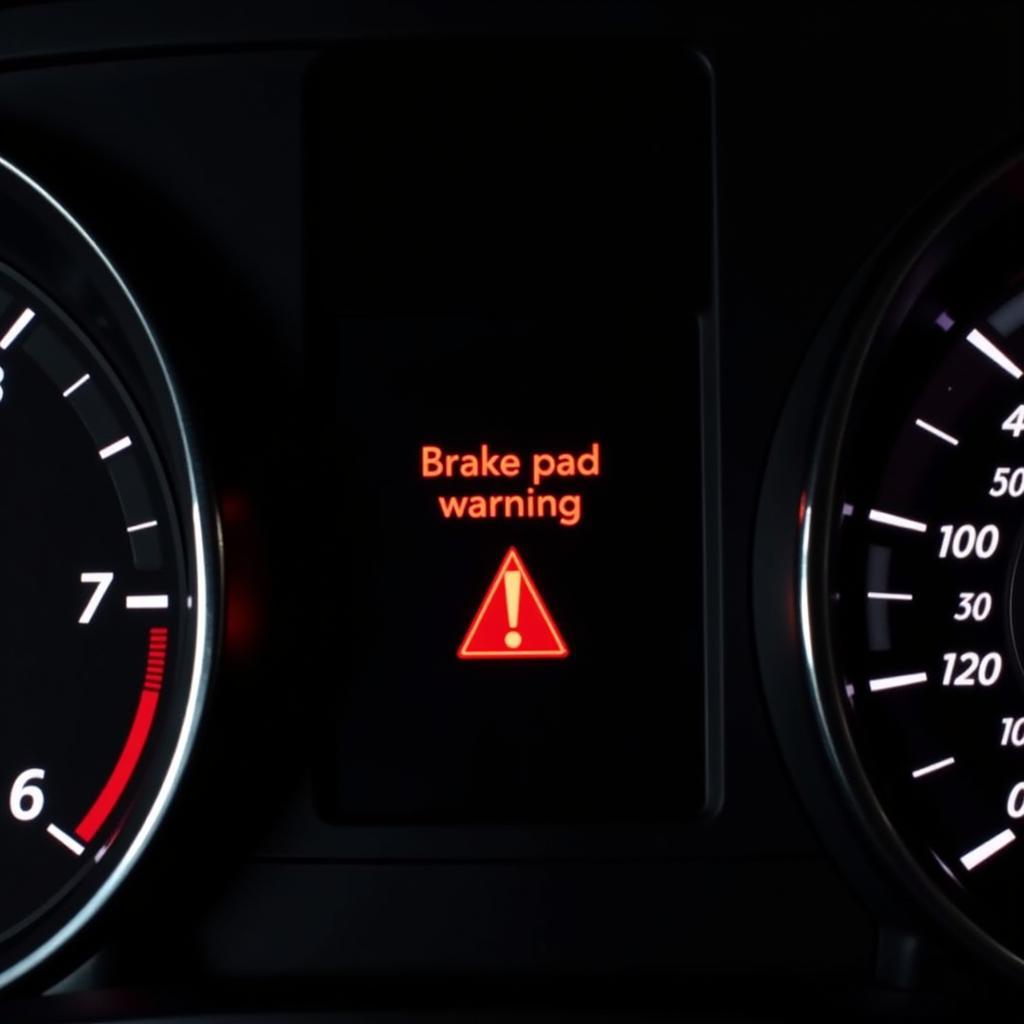Hearing a clicking noise when you try to start your car, only to be met with silence instead of the roar of the engine, can be incredibly frustrating. This usually indicates a problem with your car’s starting system, and understanding the cause is the first step to getting back on the road.
Common Causes of Clicking Noises and Starting Problems
Several culprits could be causing the dreaded clicking noise and preventing your car from starting. Let’s dive into the most common issues:
1. Dead Battery: The Usual Suspect
A dead battery is the most frequent reason for a clicking noise when starting your car. Your battery provides the jolt of electricity needed to power the starter motor. When the battery is drained, the starter motor tries to engage but lacks sufficient power, resulting in rapid clicking sounds.
Expert Insight: “Always check the battery first when encountering starting problems. It’s often the easiest fix and can save you a lot of troubleshooting time.” – David Miller, ASE Certified Master Technician
2. Faulty Starter Motor: The Heart of the Issue
If you’ve ruled out the battery as the problem, the starter motor itself could be the culprit. The starter is responsible for cranking the engine to life. When it fails, you might hear a single click or a series of clicks as the solenoid (an electromagnet within the starter) tries to engage the starter gear.
3. Loose or Corroded Battery Connections: The Silent Saboteurs
Even if your battery has juice, loose or corroded battery terminals can disrupt the flow of electricity, leading to starting issues. Over time, battery terminals can accumulate corrosion, creating resistance and preventing the starter from receiving enough power.
4. Electrical Issues: The Hidden Culprits
Various electrical issues, such as a bad ignition switch, faulty wiring, or a blown fuse, can disrupt the starting process. These issues can interrupt the electrical pathway needed to energize the starter motor, resulting in a clicking noise and a no-start situation.
Expert Insight: “Don’t underestimate the impact of electrical problems. A thorough inspection by a qualified technician is crucial to pinpoint and resolve these issues effectively.” – Emily Carter, Automotive Electrician
5. Parasitic Draw: The Battery Killer
A parasitic draw occurs when an electrical component in your car continues to draw power even when the vehicle is off. This can slowly drain your battery, leading to a no-start condition and the telltale clicking noise. Common culprits include interior lights left on, faulty aftermarket accessories, and malfunctioning modules. To learn more about identifying and resolving parasitic draws, check out our guide on the normal draw on car battery.
Troubleshooting Clicking Noise and Starting Problems
Here are some steps you can take to troubleshoot the issue:
-
Check Your Battery Connections: Inspect your battery terminals for any signs of corrosion or looseness. If necessary, clean the terminals with a baking soda and water solution and tighten them securely.
-
Jump-Start Your Car: If you suspect a dead battery, attempt to jump-start your car using jumper cables and a working battery. However, a successful jump-start might only be a temporary solution, and you’ll need to address the underlying battery issue. Learn more about recognizing the signs dead battery.
-
Test Your Battery: If a jump-start works, have your battery tested at an auto parts store or by a mechanic. This will determine if the battery is holding a charge or needs replacement. Discover potential reasons why your car won’t start and its not the battery.
-
Inspect the Starter: If the battery isn’t the problem, listen carefully while someone else tries to start the car. A single loud click could indicate a faulty starter motor or solenoid.
-
Consider Electrical Issues: If you suspect an electrical problem, it’s best to consult a qualified mechanic. They can diagnose the issue using specialized equipment and pinpoint the faulty component. If you’re unsure whether it’s your battery or alternator causing the problem, refer to our helpful guide on is my battery dead or is it the alternator.
When to Seek Professional Help
While some clicking noise and starting problems can be addressed with DIY solutions, seeking professional help is crucial if:
- You’ve ruled out common issues like a dead battery and loose connections.
- You’re uncomfortable working on your car’s electrical system.
- The problem persists despite your troubleshooting efforts.
A qualified mechanic can accurately diagnose the issue and recommend the appropriate repairs, saving you time, money, and potential headaches.
Conclusion
Experiencing a clicking noise and a car that won’t start can be a major inconvenience, but understanding the common causes and troubleshooting steps can help you get back on the road quickly. Remember, regular car maintenance, including battery checks and terminal cleaning, can prevent many starting problems. If you’re unsure about any aspect of diagnosing or fixing the issue, don’t hesitate to seek professional help.


